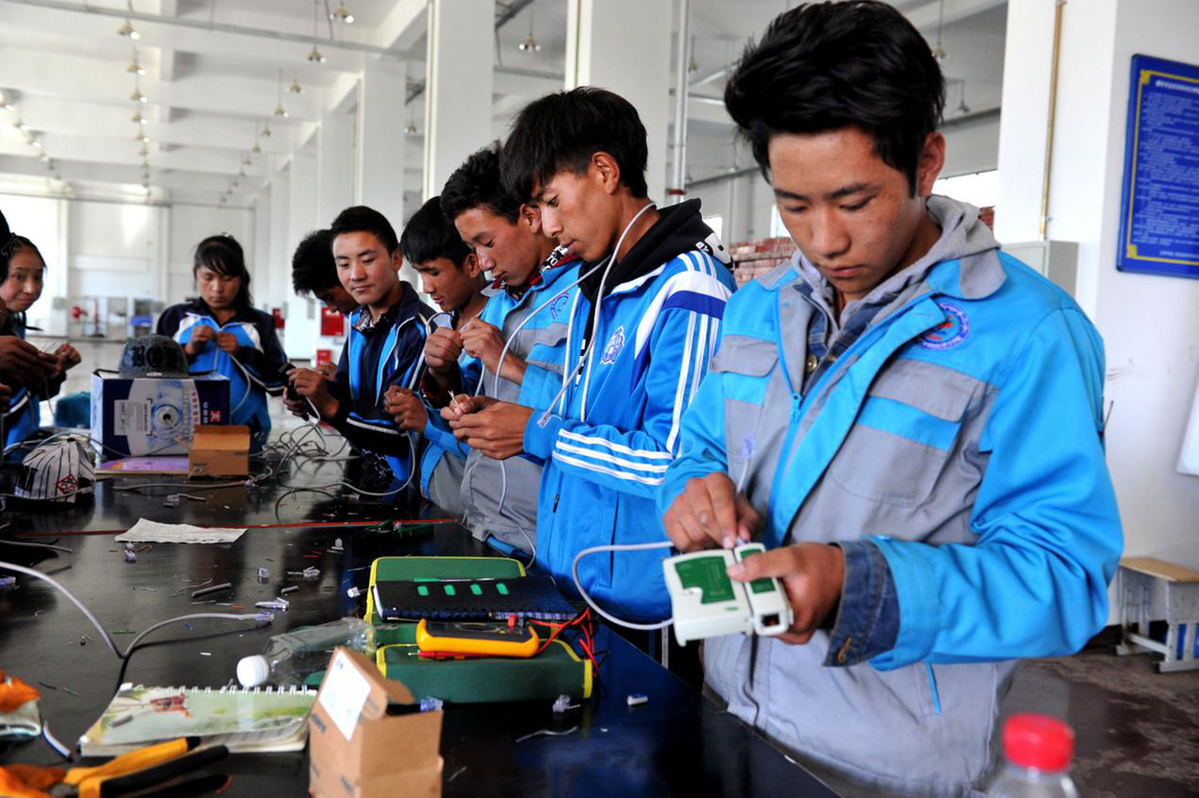
Students attend a lab class in a middle school in Lhasa, capital of the Xizang autonomous region. [Photo by Palden Nyima/chinadaily.com.cn]
The Xizang autonomous region invested 2.63 billion yuan ($362 million) in various education projects in 2024, according to the regional education work conference, which was held in the capital city Lhasa on Friday.
Last year witnessed a significant infusion of big funds in implementing 124 education projects, with a special focus on bolstering educational infrastructure in border regions, said the regional education department.
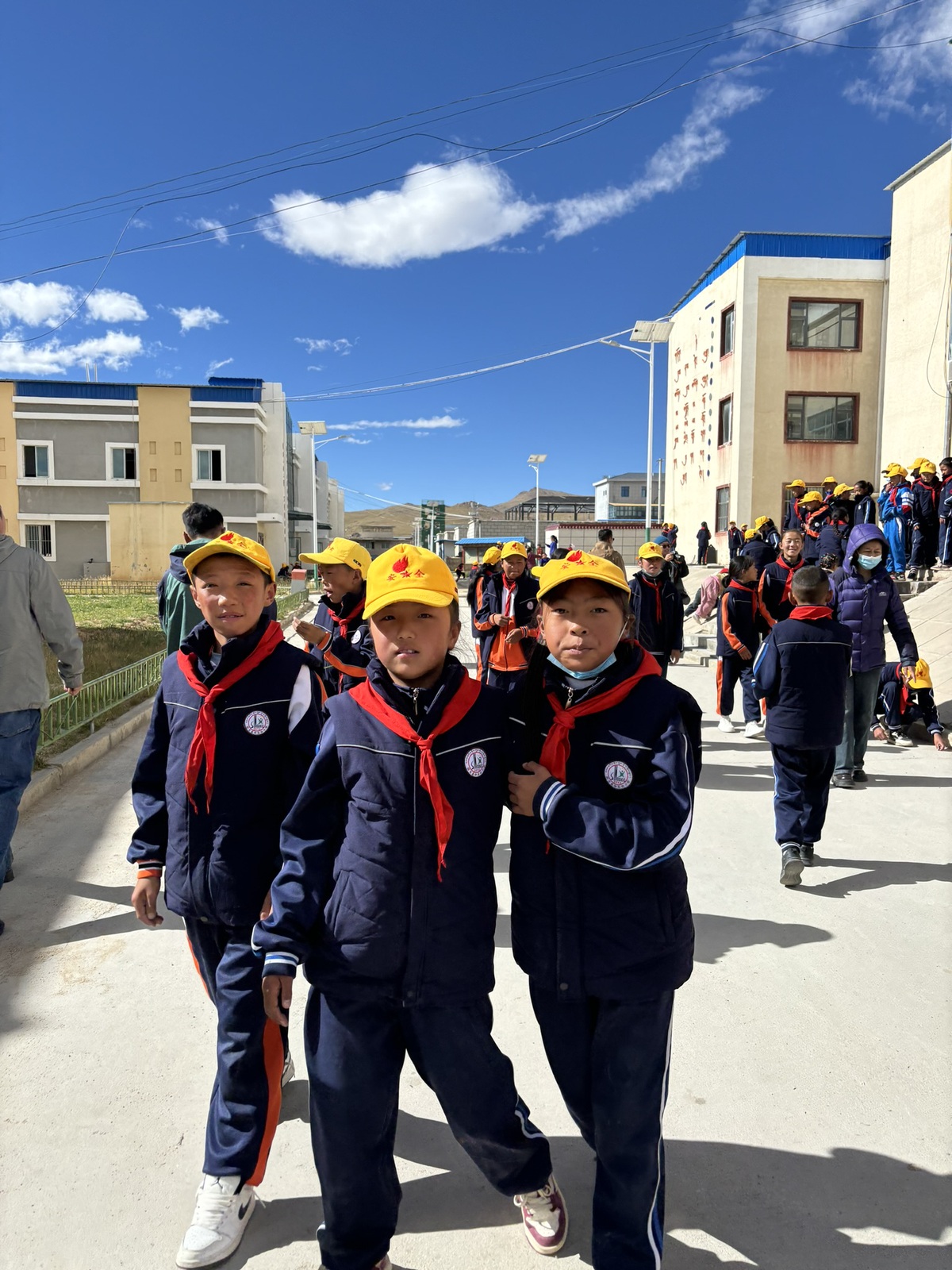
Students walk in their school yard during a break in a primary school in Nagchu city, Xizang autonomous region. [Photo by Palden Nyima/chinadaily.com.cn]
A substantial sum of 385 million yuan was allocated for the construction of 30 projects in these areas, alongside a separate fund of 523 million yuan dedicated to establishing 10 high-standard "Gateway Schools".
Elevating the standards of education, the per capita annual funding for the "sanbao" policy - which pays for children's school meals, lodging and tuition - was raised by an additional 90 yuan.
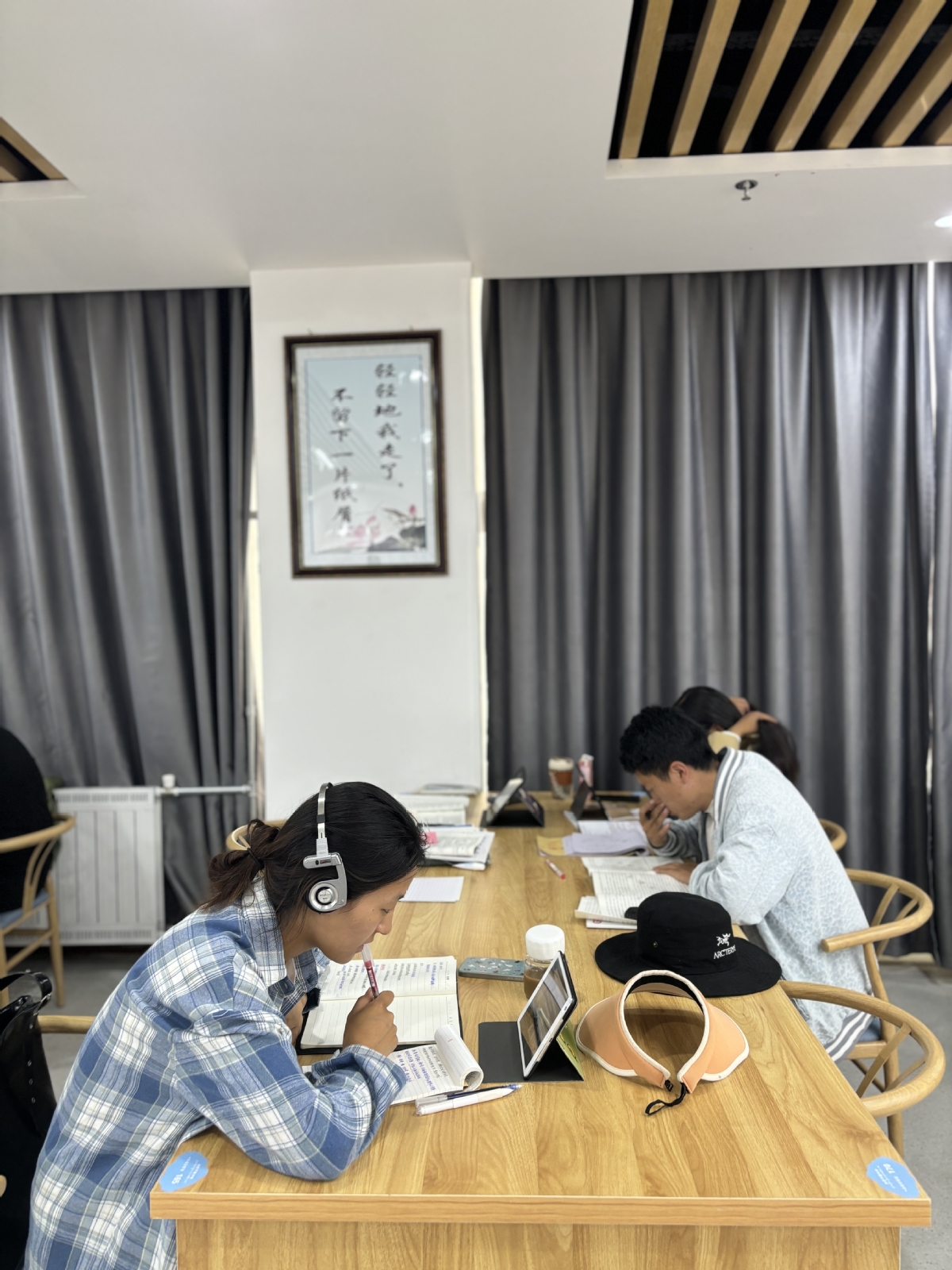
Students study in a library in Lhasa, capital of the Xizang autonomous region. [Photo by Palden Nyima/chinadaily.com.cn]
The subsidies, which are distributed by the Xizang government, cover children from kindergarten through senior high school.
The annual subsidy each student receives has reached 5,620 yuan, including 1,000 yuan of the national nutrition meal program. A staggering 3.24 billion yuan was earmarked to ensure the effective implementation of the "sanbao" policy, benefiting a commendable 714,300 students across the region.
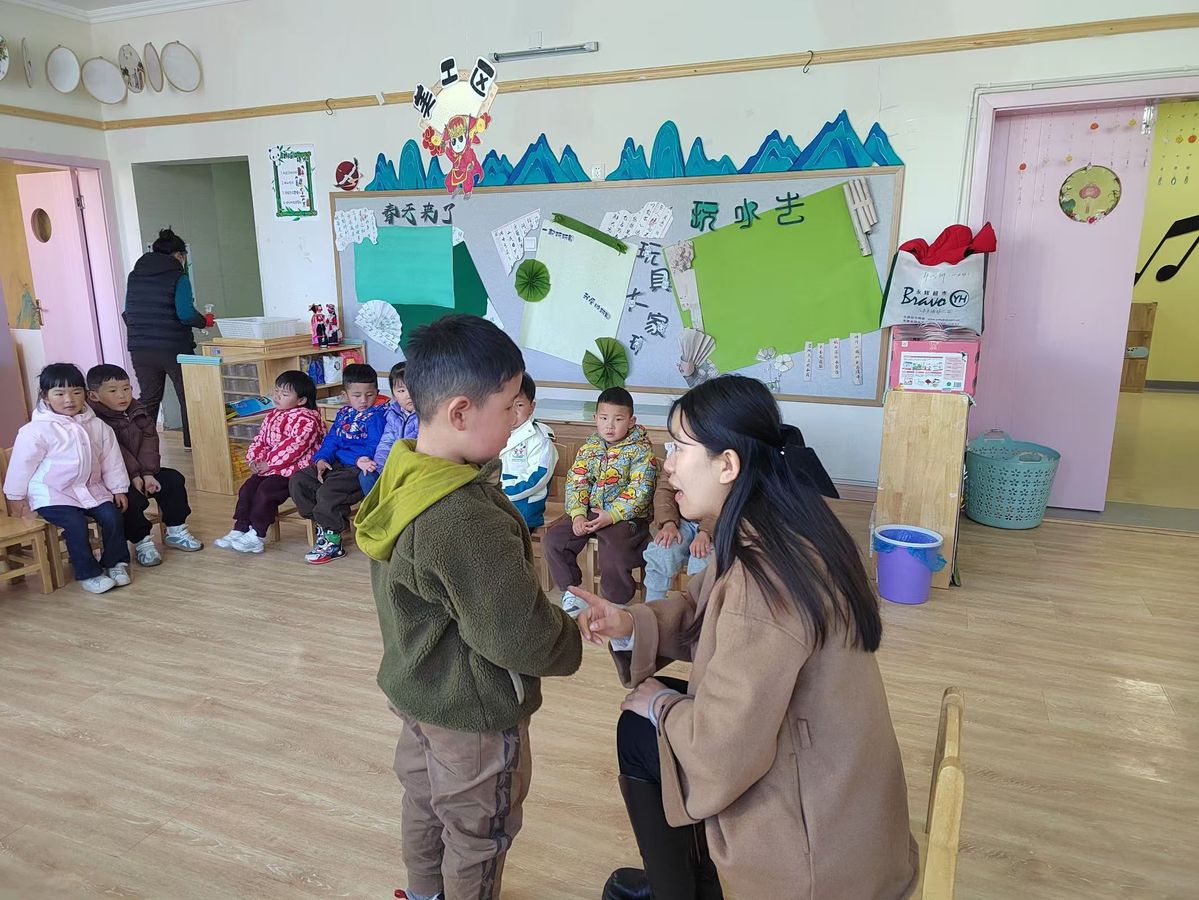
Children interact with their teachers at the Lhasa Jiangsu Experimental Kindergarten in Lhasa, capital of the Xizang autonomous region. [Photo by Palden Nyima/chinadaily.com.cn]
The educational landscape in Xizang witnessed a paradigm shift with the creation of nine national-level experimental zones, focusing on comprehensive reform in basic education, special education, and kindergarten education quality enhancement.
Moreover, students in these areas can share teaching resources with their urban counterparts via the internet, thanks in large part to the Aid-Xizang program.
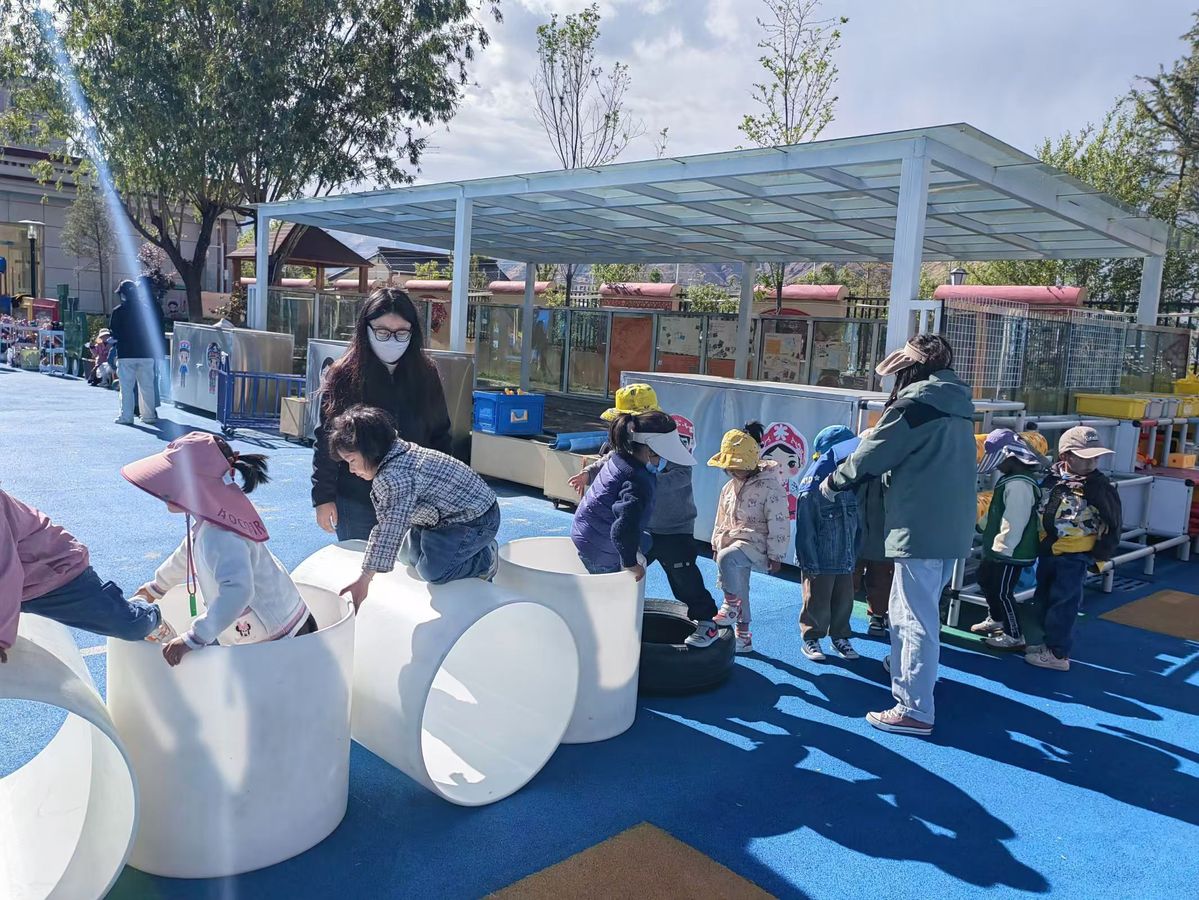
Children interact with their teachers at the Lhasa Jiangsu Experimental Kindergarten in Lhasa, capital of the Xizang autonomous region. [Photo by Palden Nyima/chinadaily.com.cn]
This initiative facilitated online paired teaching between 21 group-assisted schools and 21 schools in underprivileged border counties in Xizang, fostering a collaborative learning environment.
Xizang has been receiving sustainable support from the central government, other provinces, cities, and State-owned enterprises, following decisions and arrangements made by the central government 30 years ago.